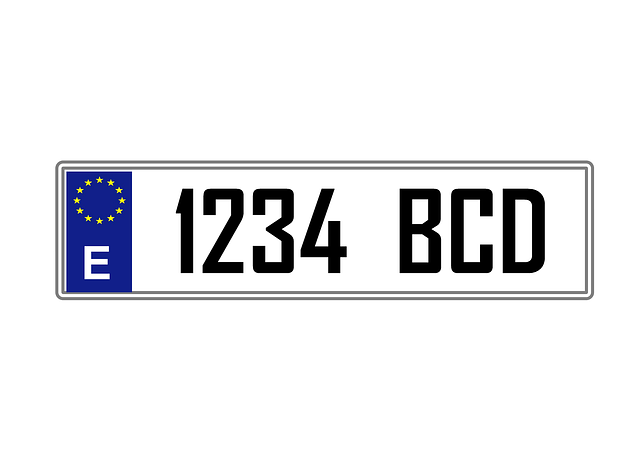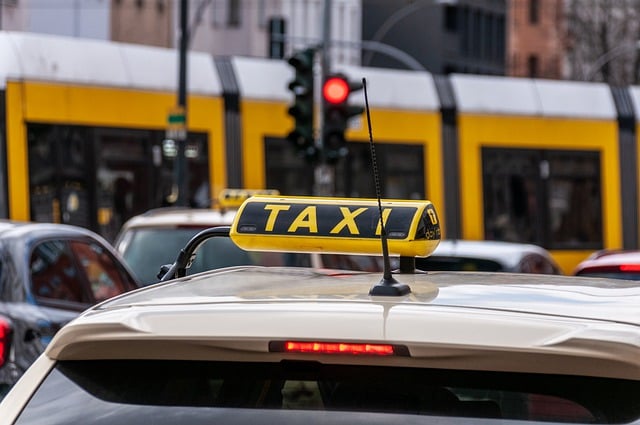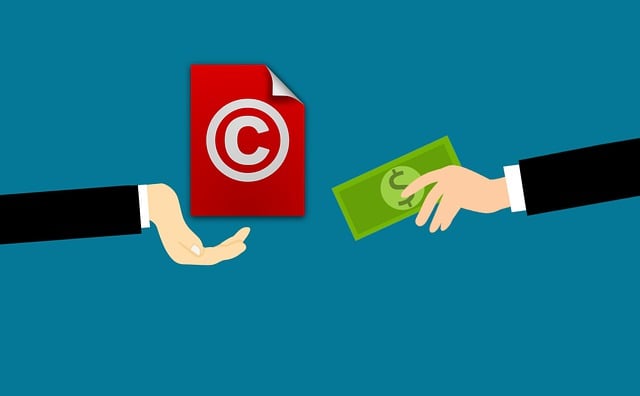The article provides comprehensive guidance on renewing vehicle registration with the DMV through various methods including online, by mail, or in person. It emphasizes the importance of staying updated on registration expiration dates to avoid penalties and ensure legal compliance. The DMV's online portal simplifies the process by allowing electronic form completion and payment for registration fees. State-specific documentation requirements must be met, and drivers can receive reminders about renewal dates from the DMV. Digital advancements have made vehicle registration tracking more efficient with real-time status updates and mobile apps that notify drivers of important dates and required actions. Understanding your state's unique regulations and utilizing the available digital tools is key to maintaining a current registration without incurring late fees or compliance fines. The guide concludes with practical steps for renewing registration, including checking expiration dates, gathering necessary documents, and choosing the most convenient renewal method based on individual preferences and state offerings. It also advises using online tools for status tracking and setting reminders to ensure timely renewals.
Navigating the process of renewing your vehicle registration can often be a source of stress for drivers nationwide. Traditionally seen as an administrative hurdle, recent advancements in online DMV services have transformed this task into a streamlined experience. This article delves into the new tools and updated processes that demystify and simplify the DMV registration renewal, ensuring you stay compliant with state regulations and avoid unnecessary fees. We’ll explore the benefits of digital services, how to track your registration status, and provide a comprehensive guide to ensure your renewal process is efficient and stress-free. Whether you’re new to online registrations or familiar with the process, our insights will help you navigate this task with ease.
- Understanding DMV Registration Renewal Processes
- Online DMV Services Simplify Vehicle Registration
- Tracking Your Registration Status with New Tools
- Avoid Late Fees and Compliance Fines
- State-Specific Deadlines and Requirements
- Digital Options for Hassle-Free Renewals
- Step-by-Step Guide to a Stress-Free Renewal
Understanding DMV Registration Renewal Processes

The DMV registration renewal process is designed to ensure that all vehicles on public roads are safely and legally operated. To initiate the renewal, vehicle owners must provide specific documentation, typically including proof of vehicle insurance, a valid driver’s license, and the current registration documents. This information can often be submitted online through the DMV’s digital portal, which streamlines the process by allowing users to fill out forms and make payments electronically. It’s important to note the specific requirements for your state, as they may vary in terms of accepted documentation and fees. Additionally, owners should keep an eye on their registration expiration date, as driving with an expired registration can lead to fines and potential legal complications. The DMV has implemented systems to remind vehicle owners of upcoming renewal dates via mail or email notifications. By familiarizing yourself with your state’s specific guidelines and utilizing the available online tools, you can navigate the DMV registration renewal process efficiently and without undue stress. These resources not only facilitate timely renewals but also provide real-time updates on the status of your application, ensuring a clear and straightforward experience for vehicle owners.
Online DMV Services Simplify Vehicle Registration

The advent of online DMV services has revolutionized the process of vehicle registration, making it a significantly less stressful endeavor. Gone are the days when individuals had to endure long queues and in-person visits to local DMV offices. Now, with just a few clicks, drivers can conveniently initiate their registration renewal online. These digital platforms are designed to be user-friendly, guiding motorists through each step of the process, from submitting personal information to making payments for registration fees. The streamlined nature of these services not only saves time but also reduces the administrative burden on drivers. Additionally, the integration of secure online payment systems eliminates the need to carry cash or checks, further simplifying the transaction.
To enhance compliance and ensure that vehicle registrations are up-to-date, DMVs have introduced various tools and resources. One such resource is the ability to track your registration status in real time. This feature allows drivers to monitor their application’s progress and confirm when their new registration has been processed and issued. Moreover, the implementation of automated reminders for upcoming renewal dates helps vehicle owners avoid the inconvenience and financial penalties associated with late registrations. These digital tools are part of a broader effort by state DMVs to modernize their services, making the vehicle registration process more efficient and accessible for all drivers.
Tracking Your Registration Status with New Tools

The advent of digital tools has streamlined the process of tracking your vehicle’s registration status, offering a level of transparency and ease that was previously unattainable. Many states now provide online portals where vehicle owners can check the current status of their registration at any time. These platforms often offer real-time updates, allowing you to verify whether your registration is up to date or if there are pending actions required to complete your renewal process. This proactive approach ensures that you are informed and can take timely action to avoid any lapses. Additionally, some DMVs have introduced mobile applications that send notifications for upcoming renewal dates, as well as reminders for any required documentation or additional fees. With these tools at your disposal, you can manage your registration status with greater efficiency and less anxiety about potential late fees or compliance issues. It’s a user-friendly system designed to keep you, the driver, informed and compliant with state regulations regarding vehicle registration.
Avoid Late Fees and Compliance Fines

Avoiding late fees and compliance fines associated with expired vehicle registration is a significant benefit of staying on top of this process. Many states now offer online platforms where you can easily check your registration status, ensuring that you are aware of when your renewal is due. These digital tools allow for real-time updates, so you can plan accordingly and avoid the inconvenience and potential penalties of an overdue registration. By utilizing these services, you can set reminders, complete the renewal process online, and have your new registration documents mailed to you or made available for electronic retrieval. This proactive approach not only saves time but also ensures that your vehicle is in full compliance with local and state regulations.
To further mitigate the risk of incurring late fees or compliance fines, it’s advisable to note the expiration date of your registration and set reminders well before the due date. Some DMVs send out renewal notices by mail, but relying on these can be risky as postal delays might cause you to miss the deadline. Therefore, taking a proactive stance and checking your registration status regularly through the provided online services is the most reliable method to stay compliant and avoid unnecessary fines. Keeping your vehicle registration current not only fulfills legal requirements but also contributes to safer road conditions as all vehicles on the road are properly registered and inspected.
State-Specific Deadlines and Requirements

Each state has its own set of deadlines and requirements for vehicle registration renewal, which can vary significantly from one jurisdiction to another. It is imperative to familiarize yourself with your specific state’s guidelines to ensure compliance and avoid any penalties associated with an expired registration. The timeline for renewal is often tied to the vehicle’s anniversary date of first registration or a fixed calendar cycle, such as annually, bi-annually, or biennially. Additionally, requirements may include proof of insurance, emission tests, vehicle inspection, and proof of ownership or lease agreement. Some states have implemented online platforms where you can easily check these details, while others may require submitting paper documents or visiting a local DMV office. Understanding the nuances of your state’s registration process is key to navigating this task efficiently. With the advent of online services, many states now offer electronic reminders and notifications for upcoming renewal dates, which can be tailored to your preferences, helping you stay informed and compliant with minimal effort. Keeping abreast of these state-specific deadlines and requirements is essential for maintaining your vehicle’s registration and ensuring continued road legality.
Digital Options for Hassle-Free Renewals

The advent of digital options has significantly streamlined the vehicle registration renewal process, making it more accessible and less stressful for motorists nationwide. Many DMVs have implemented online portals where individuals can complete their registration renewals with just a few clicks. These platforms not only save time but also offer convenience, as you can perform this task from the comfort of your home or on the go, at any time that suits your schedule. The process is user-friendly, guiding drivers through each step with clear instructions and real-time updates. Additionally, these online services often provide immediate confirmation upon completion, so you have instant reassurance that your registration is up to date. For those who prefer a paper trail, some DMVs also offer the option to receive your renewed registration documents via email or mail, depending on your preference and the services provided by your local DMV.
Furthermore, the integration of automated reminder systems linked to your vehicle’s registration expiration date has been a game-changer. These systems send timely notifications to your preferred communication channel, be it email or text message, alerting you well in advance of the renewal due date. This proactive approach ensures that drivers are less likely to miss their renewal deadline, thus avoiding potential late fees and the hassle of driving with an expired registration. With these digital tools at your disposal, the days of waiting in long lines or scrambling at the last minute to renew your vehicle registration are thankfully behind us.
Step-by-Step Guide to a Stress-Free Renewal

To navigate the process of renewing your vehicle registration with minimal stress, follow this step-by-step guide tailored for a smooth experience. Firstly, verify your vehicle’s registration expiration date. This information can typically be found on your current registration card or by accessing your state’s DMV website. Ensure you note the required documentation, which may include proof of insurance, a valid driver’s license, and any necessary vehicle-specific paperwork as mandated by your state.
Next, determine your preferred method of renewal. Most states now offer an online platform where you can complete your registration renewal. Visit your state’s official DMV website to initiate the process. Online, you will input your personal and vehicle details, verify all information is accurate, make the necessary payment, and receive electronic confirmation of your completed renewal. If you prefer or if required by your state, you can also mail in your paperwork or visit a local DMV office. Should you choose to mail your documents, ensure they are complete, include a self-addressed stamped envelope if expecting a return, and send them well before the due date to account for postal delays. At the DMV office, follow the signs or staff instructions to proceed to the correct counter or kiosk. Bring all required documentation and be prepared to pay any fees due. Upon completion, you will receive your updated registration documents on-site or by mail, depending on your state’s procedures.
Remember to utilize the online tools provided by many DMVs to track your application status and set reminders for future renewals to avoid late fees. By staying organized and informed, renewing your vehicle registration can be a straightforward and stress-free task.
Navigating the renewal of your vehicle registration is now streamlined and user-friendly, thanks to advancements in online DMV services. With clear guidelines, state-specific deadlines, and tools for monitoring your registration status, motorists can avoid the stress traditionally associated with this task. The recent enhancements in digital options ensure that drivers can complete their renewals efficiently, sidestepping late fees and compliance fines. Whether you’re a first-timer or an experienced driver, the comprehensive resources provided are designed to facilitate a seamless and hassle-free registration process. Embrace these digital innovations to keep your vehicle legally on the road with minimal effort and maximum convenience.



